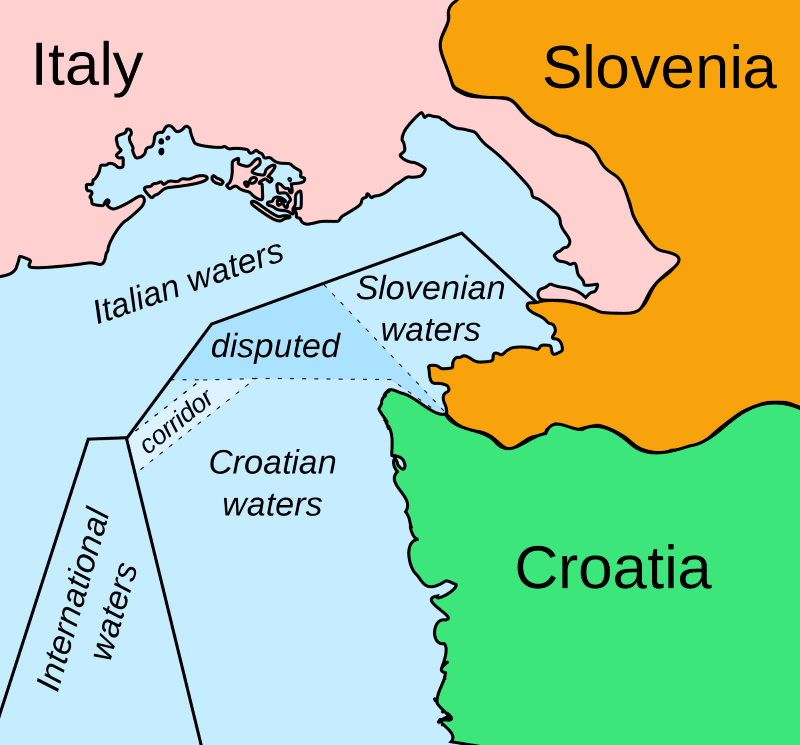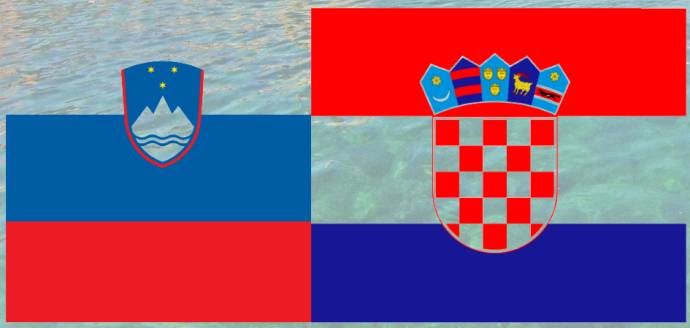STA, March 16, 2018 – Slovenia presented to the European Commission on Friday a letter in which is sets out its case against Croatia over failure to implement the border arbitration award.
The letter, which is the first step in Slovenia's plan to take Croatia to the EU's Court of Justice, was handed by Slovenia's Ambassador to the EU Janez Lenarčič to Clara Martinez Alberola, the new head of the Commission president's cabinet, Slovenia's mission to the EU said.
The letter's content remains confidential, but the information disclosed so far suggests it lists concrete instances of how EU law has been violated because of Croatia's refusal to implement the border between the two countries as set by an arbitral tribunal on 29 June 2017.
Including the documents attached, the letter unofficially runs to more than a hundred pages.
The European Commission now has three months to respond to the letter and to decide whether it will trigger procedure against Croatia before the EU court. If not, Slovenia will resume the procedure itself.
Slovenia's outgoing government adopted the letter on Wednesday just before PM Miro Cerar announced his resignation. Also adopted was a decree empowering the government to file a lawsuit against Croatia unless the step is taken by the Commission and Croatia continues to deny the validity of the arbitration award.

Wikimedia
In a separate report the STA goes on to note that the formal letter alleging breach of the EU treaties by Croatia through failure to implement the border arbitration decision which Slovenia has submitted to the European Commission is the basis for a procedure before the EU Court of Justice. But the court has heard very few such cases and ruled in favour of the plaintiff only once.
Slovenia is planning to take Croatia to court based on Article 259 of the Lisbon Treaty, under which a member state which considers that another member state has failed to fulfil an obligation under the EU treaties may bring the matter before the Court of Justice of the EU.
Before the matter goes to trial at the EU court, the Commission has three months to take its position on the matter based on arguments provided by the parties in dispute.
If the Commission is opposed or fails to take a position, this does not prevent the country to bring the case to the EU court by itself.
However, lawsuits over failure to fulfil an obligation under the EU treaties are an exception. According to available data, the court only heard six such cases and ruled in four. Only one plaintiff succeeded.
France sued the United Kingdom over an incident at sea, with the Commission taking France's side. Under the 1979 ruling of the EU Court of Justice, UK authorities illegally acted against a French fishing vessel because they had not informed other EU members and the Commission beforehand.
Three other lawsuits failed, one ended in an amicable settlement and in one the plaintiff abandoned the suit. In all cases the Commission picked the winning side.
Currently, only one case is open at the court. Austria launched a suit against Germany over its toll system last October.
Even if Slovenia succeeds in its lawsuit against Croatia, the judgement is declaratory in nature and the court cannot "require the member state to adopt a particular course of action," the EU Court of Justice told the STA.
However, under Article 260, the member state is obliged to take the necessary measures to comply with the court's judgement. The required measures are determined by the Commission, which can launch a new procedure against and suggest a fine if the member state continues to disregard the ruling.







